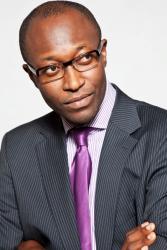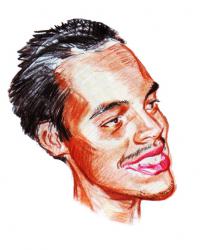Hugh Masekela: “The reality of Africa is that it is not owned by Africans”

25.01.2018 | 22:09 | simon INOU
Der südafrikanische Jazzmusiker Hugh Masekela, einer der wenigen internationalen Superstars der Trompete ist am Dienstag im Alter von 78 Jahren an Prostatakrebs gestorben. Der Komponist veröffentlichte mehr als 40 Alben und spielte mit Größen wie Dizzy Gillespie, Herb Alpert, Fela Kuti, den Byrds, Paul Simon oder Miriam Makeba. Masekela war ein engagierter Kämpfer gegen Rassismus und für ein Afrika ohne Grenzen, ein Afrika wo die Diaspora – von Brasilien bis neue Guinea – als fester Bestandteil des Kontinents sein sollte. Am 11. August 2010, zwei Monate nach seinem fulminanten Eröffnungskonzert bei the Fussball Weltmeisterschaften in Südafrika spielte Hugh Masekela im Wiener Porgy & Bess. Mit Camillo Tossoukpe der Radio ORANGE Sendereihe Afropa Nomade trafen wir ihn für ein Interview.
—
simon INOU: Do you speak french?
Hugh Masekela: I speak un tout petit peu. I speak Francais de la rue. J´ai appris à parler Francais à Conakry en Guinée et à Matongué, Kinshasa.
Matongué
Hugh Masekela: Not Matongué but Mato-onguééé. Mon francais n´est pas propre.
On va parler en anglais alors, let´s do it in English …
Vous allez parler Anglais….
Camillo Tossoukpé: Welcome back to Vienna Hugh Masekela.
Was I here before?
simon INOU: Yes 5 years ago
Hugh Masekela: I think more?
simon INOU: Six years ago at Szene Wien
I think it was six years ago
Camillo Tossoukpé: Congratulations to have taken part to the football World cup in South Africa last june.
Hugh Masekela: You mean the opening concert ..
Camillo Tossoukpé: Yes…
Hugh Masekela: It was only two minutes…
Camillo Tossoukpé: Still it was special for us. First of all because South Africa represented the hole continent. The success of the competition was a great event. Thank you for taking part…
Hugh Masekela: I think may be you should thank the organisers for putting it on. I was just a cog in the wheel
Camillo Tossoukpé: Without you this event wouldn´t be what it was. Without names like yours and some others it will be like a meal without soul
Hugh Masekela: I was raised not to think I am important. And if I don´t remember that my grandmother will send lightening into this room and we will all die. (laughing)
simon INOU: Mr Masekela what could we learn as africans about the last football world cup competition organised in South Africa this year 2010 ?
Hugh Masekela: Well, I think the greatest thing about the competition was the fact that it showed a very joyful nation, for the first time in 400 years. It was the most joyest World cup, there was no politics visible. It was colourful but it was so joyest that the world got a different picture from that which is so far being disseminated by popular international media. To that extent it was fantastic especially because the FIFA also said that it was the best world cup in the history of the World Cup ever organised. But on the other hand, I think anybody who misconstrues the world cup which comes after 400 years of strife in Africa where we live in artificial borders that where chosen by colonialists of the colonies for us. Basically Africans don’t own Africa, they just live there. They can´t even afford to pay rent. We are the most impoverished and the most exploited society in the world and this has happened for over 400 years.
So to kind of like try and shift the success of the games and the joy what was there, as a catalyst to change in Africa. I think one thing which has to be blamed, need to be examined because there is no way that the industrial world which exploits Africa is going to say “Oh because there was a great game for months and there were great games, therefore we will give Africa back to the Africans and also all the profit we’ve made from there. (laughing) It doesn’t never in the history of the world and is not about to happen. So I don’t think we should kid ourselves in thinking in those terms. I think that we should be happy, that we saw that there is a great potential in Africa for joy and for unity. That’s what we saw had the greatest social influence on the world for a month than any other event that has ever taken place in sports or in any other form of international forum, wether it is UN Summit or African Union. There was nothing like that… There was nothing. I think that should encourage Africans in their heads to start thinking about an African World instead of little countries in Africa that were designated not by Africans. I think Africans should start looking at Africa in the world should look at the Caribbean, South America, the Americas and wherever people of obvious African origin are. We should stop being regionalists. I find it the most boring thing, because the biggest source of our exploitation as africans is the fact that we are regionalists. We are therefore vulnerable to being manipulated for conflicts.
simon INOU: When you speak about Africa is it from Algeria to South Africa …
Hugh Masekela: No, I am talking about the African Americans are africans, Caribbeans are africans, there is a lot of them all over the world like in South America, we only see them in the football teams. Africa is a very great, big world. It stretches to Fidschi and New Guinea, because when you look at these people you know they don’t come from China.
simon INOU: Yess…
Hugh Masekela: My obsession it that through the diversity of our cultures if we can try to revive our heritage excellence; We will go much further than all the talk that we´ve been involved in. Because one thing is that, there hasn’t been a society that has diversely reached a culture. The diversity is amazing and we need to give ourselves a chance for mutual admiration. My biggest dream is to have like an international African Cultural Fair, where we can be able to see each other, because we don’t even know each other. Even in Africa we don’t know each other, but that one was manipulated and we get into foolish arguments because of borders, that were not drawn by us. What we have never seen is the excellence of our traditional not only performance arts but also of architecture, literature and I mean we should aim through that towards recording our history through entertainment and show our excellence not only in couture, not only in cuisine but in design, dance, music and literature, theater …
simon INOU: In politics also
Hugh Masekela: Yeah, politics also. Politic is a stupid game.
simon INOU: Lets speak about Obama. He is also an African phenomenon?
Hugh Masekela : I mean like, Obama might have African roots but he is an African American and when it comes to politics, the politics of the world is controlled by business and there is never anybody who is gonna speak up alone and say I am a helpful guy and I can change this country. This is never going to happen. Mandela was unable to do anything for South African’s poor people, because as long as the will of business is not there, the condition of the world’s poor will not change and world business will never change, because they think about profit. They can’t afford not to have profit. I am not talking about Africans, I am talking about the world’s poor who are the majority of the world´s population. This is not philosophy that is the truth and people should start thinking about the truth instead of being blinded by politics and other little bullshits stuff. The reality of Africa is that it is not owned by Africans. Let´s start there.
simon INOU: But how could be change the situation? You were also in the Diaspora in the United States fighting with music to change the situation.
Hugh Masekela: I didn’t fight with music, I just happened to be a musician from an oppressed society. My resource and my source for what I do, was from the people I came from. So they would be upset not to mention them. When I was gaining attention through their music. It was the music from the people I came from and the people I have been to. But I think if we start to think and talk, people will come together then it will happen. We should spending our time saying I am a cameroonian, I am a togolese or a south african. Well I am none of those things.
simon INOU: What should we say? Should we say we are Africans, We are human being …
Hugh Masekela: We are Human beings from Africa, Africa is a region that has major problems and I think you have to look from that perspective. If you want your children to have a better perspective, it is something you should be talking about with our children. Because our children and greatgrandchildren so far the way we behave with them when they ask them, who they are. They are going to say: “They say we used to be Africans a long time ago”. Is that legacy we want to leave for our children and grandchildren, that is what we should ask ourselves. When we see Austria here you look at the buildings, you look at the history; You can say what you want to say about Austrians but they know who they are because it is visible and it is preserved. We have to start thinking about preserving our heritage and also reviving our heritage, because all the other stuff to me were manipulated. We are a manipulated society, whether we like it or not. Very smart african people have never thought that they should unite us, as a people. One of things which is most missing in our society, is the revival of our heritage. In fact, if anything would be convinced by religion, business, advertising and colonialism that our heritage is barbaric, that was primitive, hidden, pagan and we believe it. In the end we have the most colourful, the most diverse, the most rich, the most original heritage in the world and it is that heritage that civilized the rest of the world.
Camillo Tossoukpe: I would like to add something to the interview about the album with Till Brönner, the young German trumpetist.
Hugh Masekela: Oh yes, a wonderful musician.
Camillo Tossoukpe: How did you come to work with Till Brönner? Was it this through your music label ?
Hugh Masekela: Till Brönner sent me his records and a letter to say he would like to meet me and that he had been inspired by me. In fact I didn´t pay attention to his records for about three months it was in the backseat of my car. One day I was waiting in a queue to register my new car and I say to myself let me play this record and out came the most beautiful trumpet player I had heard in many, many years. So when I came to Europe in Paris to do some interviews because of my last album had been released, he came from Berlin. Then he flew down to South Africa and we did this one track together and we planned to do a CD together.
Camillo Tossoukpe: You have projects with many young South African musicians during the time you were in exile. Is there any regret they didn’t have you during your exile?
Hugh Masekela: No, I don’t regard myself as that important component. (laughing). When you look at the band with which I’m playing tonight three of the musicians are in their early twenties. So it’s training ground for them. I am involved in theatre, we just did “Songs of migration” where I was in a cast of 14. I think four of them came here with Themba Mkhize. So it is a sort of live academy of life, life interaction with young people; they learn what I know and I learn from them. I look at it as an African leadership academy. Wherever I live, in Guinea, Ghana. In fact, in Ghana I took at band in 1974 and we went to record six great albums. All of them were every successful. I worked with a lot of young african-american musicians in the States (USA) and in the Congo, Botswana. So whatever, it helps me to absorb the different cultures and regions. Now I am able to work with different people in theatre. I am going to do it in film, dance, couture, architecture, development and entertainment, because from a social-political perspective it is too much talk and none of us learn anything. But I like working with young people, with all people. One of the things that I want to work on is a revival as much as possible of our Heritage, gaining as much information on the aged of Africa like this last community of old people in Africa. People of Mandela’s age are the last people with information about our heritage and if we don’t record it, we will gonna be hybrid people.
simon INOU and Camillo Tossoukpe: Thanks a lot for this interview
Weitere Artikel von simon INOU
- MoZuluArt zum Dritten: Afrikanische Musik trifft klassisches Orchester
- Cécile Kyenge: Die erste Schwarze Frau in einer italienischen Regierung
- Schwarze Menschen in Österreich 2010 – Die Zusammenfassung
- Samuel Loe: „Der Glaube an die Hexerei legt die Kreativität der Afrikaner lahm.“
- Die Schwarzen Juden und ihr Schicksal






